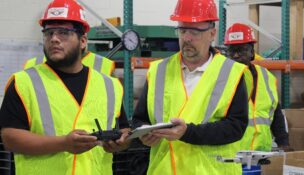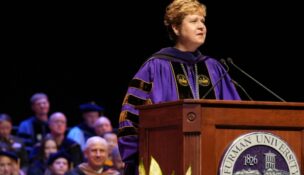Clemson professor honored by White House
Staff Report //July 5, 2019//
A Clemson University associate professor whose research could help enable long-term space missions and search for some of the globe’s most destructive weapons is receiving the U.S. government’s highest honor for early-career scientists and engineers.
Mark Blenner, the McQueen-Quattlebaum Associate Professor in the department of chemical and biomolecular engineering, is receiving the Presidential Early Career Award for Scientists and Engineers, also called PECASE, according to a news release.
“It’s an honor to be included among such an esteemed group of scientists and engineers from across the country,” Blenner said in the release. “I’d like to thank all who made it possible, including the undergraduate and graduate students who work in my lab, as well as all of my mentors and my colleagues at Clemson University.”
Blenner was among 311 researchers nationwide, including two from South Carolina, honored with the award, according to a press release from the White House.
“The PECASE is the highest honor bestowed by the United States government to outstanding scientists and engineers who are beginning their independent research careers and who show exceptional promise for leadership in science and technology,” the release stated.
Blenner is the fourth Clemson University researcher to win the award since it was commissioned in 1996 by the cabinet-level National Science and Technology Council. He is the second winner from chemical and biomolecular engineering, according to the release.
Blenner works with bacteria and yeast to make new enzymes that are able to do things nature has not yet figured out. The research gives the students in his lab a chance to work on the cutting edge of synthetic biology, the release said.
In one project, Blenner and his team are working to engineer yeast to convert respiration carbon dioxide, algae biomass and urine into 3D printable plastics and nutritional omega-3 fats. Astronauts on missions to Mars could, for example, use the plastics to make new tools and use the omega-3 fatty acids for maintaining health.
Blenner served as a research fellow at Children’s Hospital Boston and Harvard Medical School before joining Clemson as an assistant professor in 2012.
















